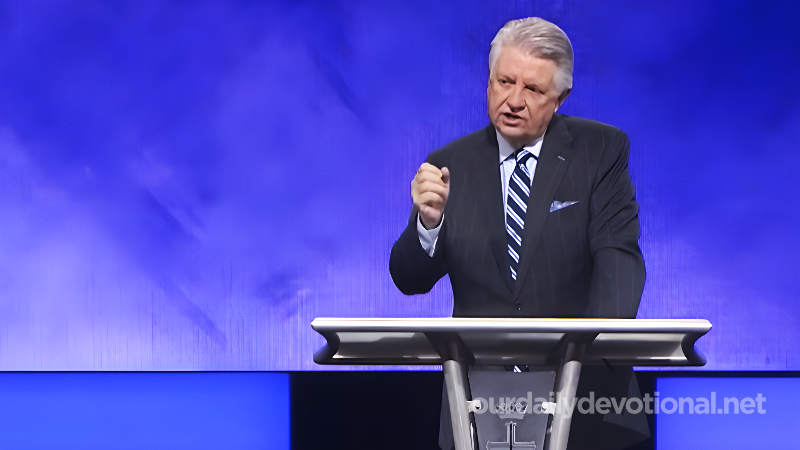Most of Moses' writings were written during the forty years of the desert.
There he recorded the stages of the journey (Num. 33), recorded important events such as the battle against Amalek (Ex. 17:14 ff.), wrote the statutes given at Sinai in the book of the Covenant (Ex. 24:4-7). and later all the prescriptions contained in his last speeches (Deut. 31:24).
The language of Moses presents the richness, liveliness and depth required by Hebrew poetry, very simple in structure, and very appropriate for the expression of fervor.
His most spontaneous poem is the song composed immediately after the crossing of the Red Sea, which reflects the exaltation of triumph over Pharaoh (Ex. 15: 1-18).
Moses attributes the glory to Jehovah (Ex. 15:1-3), describes this victory (Ex. 15:4-12), foresees its impact on Israel's enemies (Ex. 15:13-15), seeing in it a guarantee that the Lord will lead the people to the Promised Land (Ex. 15:16-18).
This song was possibly composed in a short time, while Ps. 90 gives evidence of the calm of meditation. Moses' farewell song summarizes the lessons of forty years in the wilderness; The intention is that it was memorized by the people (Deut. 32; cf. 31:19, 22).
The blessing of the tribes is expressed, as is Jacob's farewell to his children, in poetry (Dt. 33). Moses was a great writer. He uses forms known in Egyptian literature that had preceded him.
His literary and historical conceptions, the enthusiasm aroused by the beginning of the national life of the Hebrews, the extraordinary events that he experienced, prepared Moses to write the history of his people as we find it in the Pentateuch (see PENTATEUCH).
Under Jehovah's direction, Moses provided his people with civil and religious institutions that contemporaries appreciated as appropriate, normal, and necessary for the nation.
It corresponded to some ideals of the time, and represented the summit of truth on a moral and religious level. This legislation, which rested on the basis of the Decalogue, was not entirely new.
Israel had long known that God hated idolatry, which was prohibited by the second commandment (Gen. 35:2). It seems that the Sabbath day had been in force long before the promulgation of the fourth commandment at Sinai (cf. Ex. 16:22-30).
In the same way, adultery, murder, and false testimony were universally condemned long before the laws of Sinai; They constituted crimes punished everywhere.
The main characteristic of the constitution of Israel was to put moral obligations at the basis of the theocracy. E.g., the tenth commandment looks beyond the act of sin, and goes to the root, the evil desire of the heart.
The statutes joined to the Decalogue form the bulk of the book of the Covenant (Ex. 21:123:19). Regarding Hammurabi's code and Moses' alleged dependence on this code according to some scholars, see HAMMURABI.
The liturgical laws of Moses were equally adequate. They established a central and unique sanctuary. It was an immutable, symmetrical building, full of symbolism and allowing the celebration of sacrifices and a unique ritual.
An organized priesthood was established in Israel, by which a tribe, that of Levi, assumed the representation of all the firstborn who, otherwise, would have been consecrated to the
service of the Lord (cf. Ex. 13:11-16 and 32:26-29; Nm. 3:9, 11-13, 40, 41, 45 ff.; 8:16-18 and cf. article LEVITAS).
The tabernacle and its cult were an expression of a wealth of spiritual truths and shadows of things to come, of Christ and his work in sacrifice and of his priesthood and intercession for his people in his present mediatory activity (see HEBREWS and LEVITICUS, and respective Bibliographies ).
The Mosaic prohibitions placed the Hebrews on a terrain of separation from the rest of the nations, by making their customs incompatible with those of the Gentiles.
On the other hand, since it was different from the laws of pagan cults due to its monotheism and spirituality, it was intelligible to both Israelites and Gentiles; He showed the sinner the way of access to a holy God.
Moses was certainly inspired as a prophet, but God did not reveal to him a code and a new religion in all its aspects.
The Law proclaimed through his mediation had to agree with the previous revelations given to Adam and Eve about the need for sacrifice to be covered before God (Gen. 3:21) and their abhorrence of violence and iniquity (Gen. 6:5). ; 11-12 etc.), the granting of the flesh of animals without their blood (Gen. 9:34), among many other aspects. Moses spent long days in communion with God.
He enlightened her spirit, and also gave her his personal communications, revealing to her the nature of his kingdom, the laws that were most appropriate based on the teachings that he wanted to give to the Israelites and to us through their experiences and that would be appropriate. to discipline them spiritually.
Thus, inspired by God, Moses forged the constitution of Israel with all his complementary instructions. It is true that the laws transmitted by Moses have certain correspondences with human laws already existing at that time, but this is to be expected since such laws arose, on the one hand, from a distortion of a revelation known to man, transmitted through a just line, and subsequently adapted and modified by man in his apostasy, and on the other hand from provisions given by men in various circumstances, with a nature and conscience given by God that, although very imperfectly, could lead legislators of pagan nations to issue laws with an incomplete similarity and without the moral elevation of the Law given by God.
The Mosaic Law puts man in a position of responsibility towards God, and does not make a clear division between civil and religious life; In reality, the entirety of existence is theocentrically oriented, with the Law being the legal instrument of the theocratic state.
Moses showed the wisdom inherent to a statesman. His gifts made him susceptible to the jealousy of certain members of his own family (Num. 12), to the jealousy of the tribes in general, and to those of Levi's own tribe, because he displeased other leaders. great authority exercised by Moses and Aaron (Num. 16).
Moses suffered because of the materialism exhibited by the Israelites (Num. 32), because of their lack of faith in the Lord and because of their inclination towards idolatry. He assessed the weaknesses that threatened the very existence of the nation. His farewell speech (Deut. 29:30; 31) insists on the law of the single altar and on the spiritual aspect of religion.
Moses saw in it a means of raising the spiritual level of the nation to lead it to a closer walk with God, and to maintain the purity of worship and doctrine and to cement national unity, also providing provision for much more religious festivals. greater than those of the pagans (see ALTAR, DEUTERONOMY).
Everyone recognized Moses' greatness after his death (Jer. 15:1; Heb. 3:2). At the Transfiguration he had the honor of being at Christ's side, and of speaking with Him about his death in Jerusalem, which would be the fulfillment of so many types that he had presented in his writings prefiguring Christ (Mt. 17). : 3. 4). Regarding the allusion in Jud.
Meaning of MOSES (Writings)
Most of Moses' writings were written during the forty years of the desert.







